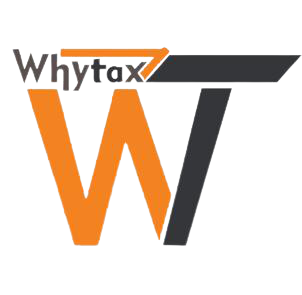A register person need to issue an invoice for the supply of services or goods or both.
Under the GST regime, an “invoice” or “tax invoice” means the tax invoice referred to in section 31 of the CGST Act, 2017. This section mandates issuance of invoice or a bill of supply for every supply of goods or services. It is not necessary that only a person supplying goods or services need to issue invoice. The GST law mandates that any registered person buying goods or services from an unregistered person needs to issue a payment voucher as well as a tax invoice. The type of invoice to be issued depends upon the category of registered person making the supply. An invoice or a bill of supply need not be issued if the value of the supply is less than Rs. 200/- subject to specified conditions.
Supply of exempted goods or services
In case a registered person supplying exempted goods or services or both or paying tax under the provisions of section 10 shall issue, instead of a tax invoice, a bill of supply containing such particulars and in such manner as may be prescribed. Provided that the registered person may not issue a bill of supply if the value of the goods or services or both supplied is less than two hundred rupees subject to such conditions and in such manner as may be prescribed;
Details need to be show in the GST invoice
There is no format prescribed for an invoice, however, Invoice rules makes it mandatory for an invoice to have following fields (only applicable field are to be filled):
(a) Name, address and GSTIN of the supplier;
(b) A consecutive serial number, in one or multiple series
(c) Date of its issue;
(d) Name, address and GSTIN or UIN, if registered, of the recipient;
(e) name and address of the recipient and the address of delivery, along with the name of State and its code, if such recipient is unregistered and where the value of taxable supply is fifty thousand rupees or more;
(f) HSN code of goods or Accounting Code of services;
(g) Description of goods or services;
(h) Quantity in case of goods and unit or Unique Quantity Code thereof;
(i) Total value of supply of goods or services or both;
(j) Taxable value of supply of goods or services or both taking into account discount or abatement, if any;
(k) Rate of tax (central tax, State tax, integrated tax, Union territory tax or cess);
(l) Amount of tax charged in respect of taxable goods or services (central tax, State tax, integrated tax, Union territory tax or cess);
(m) Place of supply along with the name of State, in case of a supply in the course of inter-State trade or commerce;
(n) Address of delivery where the same is different from the place of supply;
(o) Whether the tax is payable on reverse charge basis; and
(p) Signature or digital signature of the supplier or his authorized representative
Time Limit of issuing the GST Invoice
| Supply of Goods | Supply of Services |
| The tax invoice must be issued before or at the time of – Removal of goods, where supply involves movement of goods Delivery of goods to the recipient, where supply does not require movement of goods Issue of account statement/ payment, where there is continuous supply | The tax invoice must be issued within – 30 days from the date of supply of the service 45 days from the date of supply of the service, where the supplier is an insurer or banking company or a financial institution |
Invoice in case of continuous supply of goods
In case of continuous supply of goods, where successive statements of accounts or successive payments are involved, the invoice shall be issued before or at the time each such statement is issued or, as the case may be, each such payment is received.
Invoice in case of continuous supply of services
In case of continuous supply of services, where,
(a) The due date of payment is ascertainable from the contract; the invoice shall be issued on or before the due date of payment;
(b) The due date of payment is not ascertainable from the contract; the invoice shall be issued before or at the time when the supplier of service receives the payment
(c) The payment is linked to the completion of an event; the invoice shall be issued on or before the date of completion of that event.
In the next post we will discuss about the Credit note, Debit note, Revised Invoice and Receipt Voucher/ Refund voucher on receipt of advance payment.
